So, you’re one of the few people who want to have a car in the Netherlands. Good on you! But there are a couple of things you should know.
When you’re first getting a car, you may be shocked at the lack of information there is on having a car in the Netherlands. Especially because there’s a lot to consider, including:
- Driving licences — obtaining and exchanging
- How to buy a car in the Netherlands — registration and insurance
- Selling a car in the Netherlands
- Importing a car in the Netherlands
It can be confusing to start your car-purchasing journey, so this is everything you need to know about having a car in the Netherlands.
Driving licence
Let’s get started on having the most important piece of documentation you’ll need. Without a valid driving licence, you can kiss goodbye to having a car in the Netherlands. You can’t drive legally until the age of 18 — if you’re 17, you’re out of luck for now. So, what are the first steps of having a car in the Netherlands?
I don’t have a driving licence
Welcome to the world of driving a car! We can imagine wanting to learn to drive in another country may seem even scarier but there are ample driving instructors in the Netherlands.
A language barrier won’t be an issue too! Plenty of driving schools around the Netherlands offer complete lessons and exams in English.
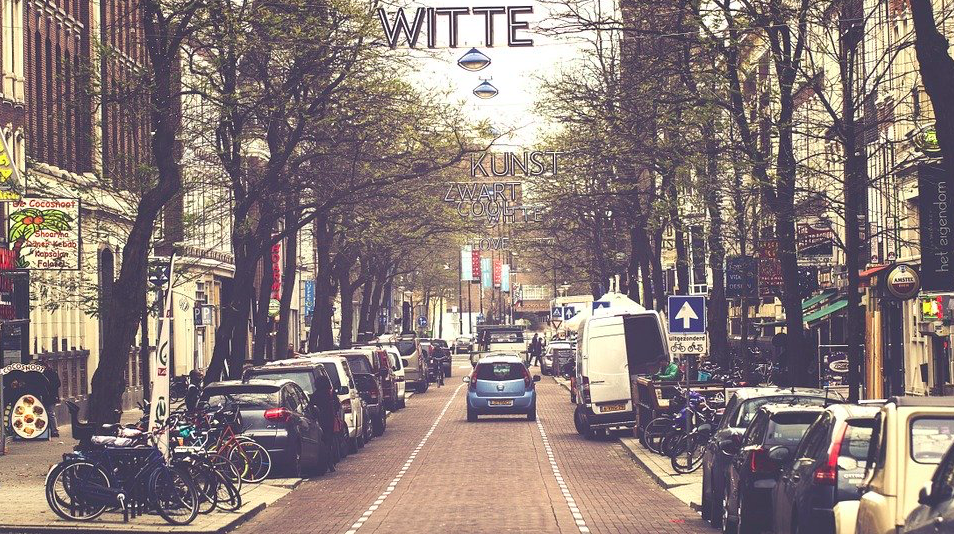
If you want driving instructors, just a simple Google search will do the trick and show you instructors in your area. You’ll notice that because you searched in English, many international driving schools will pop up.
READ MORE | A Dutch driving licence! 5 steps to that valued driver’s licence in the Netherlands
It’s worth comparing the prices and looking at their website/Facebook for reviews. Once you’ve booked your lessons with someone, they help you with all you need to pass your test.
I have an EU/EFTA driving licence
So you’ve passed your dreaded test and you hold a licence from an EU country. This bit is easy! You don’t have to do anything. You’re all set as long as you have an ID or passport and driving licence to prove you can drive.
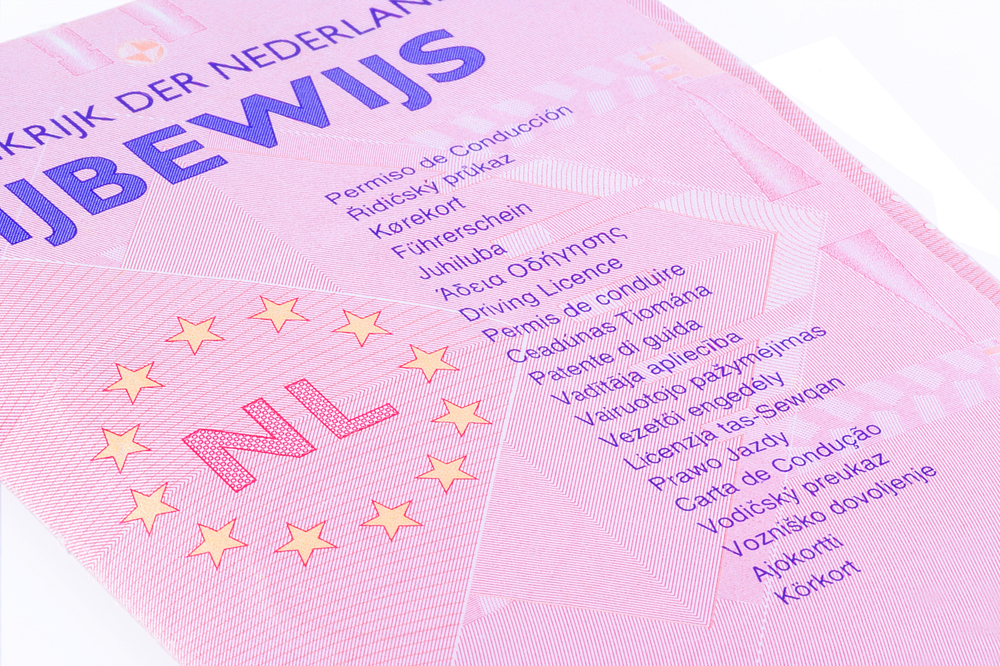
You can drive on this licence for 10 years (or whenever your current one runs out). After these 10 years (or if your other one runs out), you need to switch to a Dutch licence.
I have a driving licence from outside the EU
In some cases, you can exchange your non-EU licence for a Dutch one. This must happen within six months of registration to the Netherlands. How do I exchange, you ask?
You need to make an appointment with your local stadhuis (city hall) to get up-to-date proof of residency. You can send your licence, recent passport photo, and Certificate of Medical Fitness to the Driving Test Organisation. They will then sort the exchange for you.
But in other cases, you may have to retake your theory and practical exam before being granted a Dutch licence. You can find out which situation applies to you on the RDW website.
Buying a car in the Netherlands
Like everything else here, having a car in the Netherlands is expensive. To buy (an expensive) car, you turn up at a car dealership or to an individual selling the car and buy it from them.
Make sure that your car suits your needs
Another thing: make sure you buy a car suited to your needs. I bought a little city car — a Ford KA and then drove around the whole of Europe in it and almost killed the thing.
READ MORE | Buying a car in the Netherlands: 6 things to know
Don’t do that. Like always, you have to ensure the APK is all okay and the car is safe to drive. You should ask for all of the documents for your new car.
Registering your car
Are you ready to drive your new car? Make sure you get everything properly registered before driving off into the sunset! You need to register your car in your name. And sadly, this isn’t as simple as just calling someone up and them doing it for you in many cases.
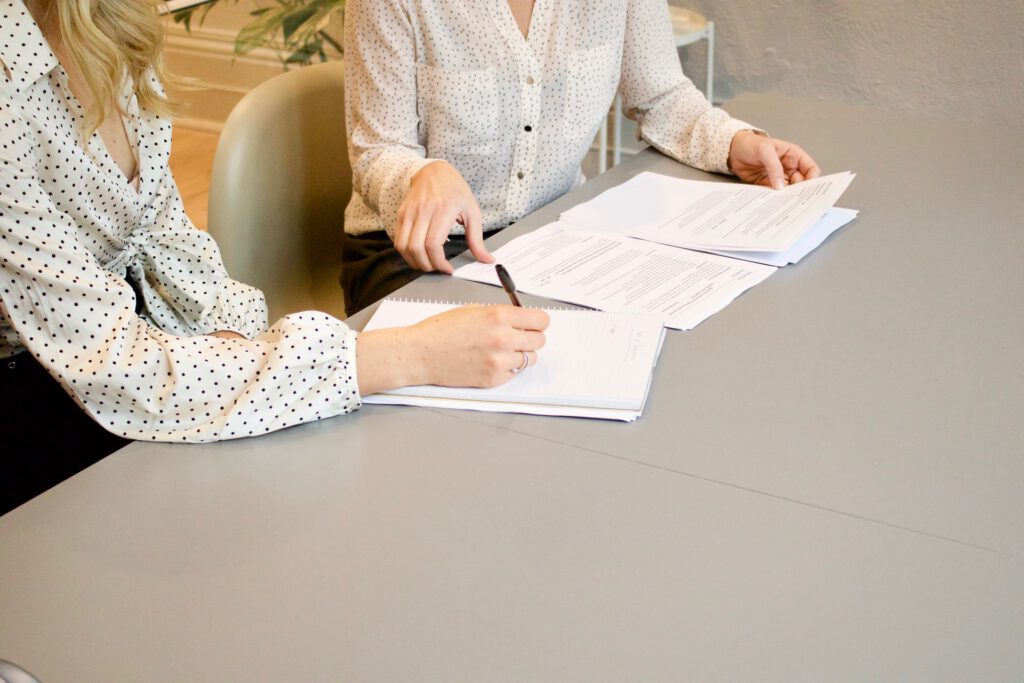
If you have a Dutch identification card, you can go to your local post office with all your documents and identification, and they do it for you. You need to go to an RDW inspection station if you don’t. Either the person selling to you needs to come with you, or they must give you the car documents.
Luckily, my nice car dealer drove me to the RDW with my gemeente documents (must be no more than three months old), car documents, passport, and driving licence, and I was all registered.
Obtaining car insurance
Now I promise you, this one is easy. All you have to do is find an insurance company that you want to insure with, call them up, and they will insure your car to drive. There are a few comparison sites in English online.

It’s also worth asking your car dealership (if you bought a car from them) to get you a deal. Mine rang up a company and got us a better deal than anywhere else. It also saved us the hassle of a language barrier on the phone.
Once that’s all set, you’ll be billed monthly for your insurance, and anybody can drive your car with your permission (it’s the car that’s insured, not the person, like in some countries). Insurance isn’t cheap, and it also can go up if the company experiences a lot of claims that year.
Selling a car in the Netherlands
Before we begin, DO NOT run your car to the ground and then try to sell it — it won’t work. You will lose so much value. So, take that advice if you don’t want to lose any money.
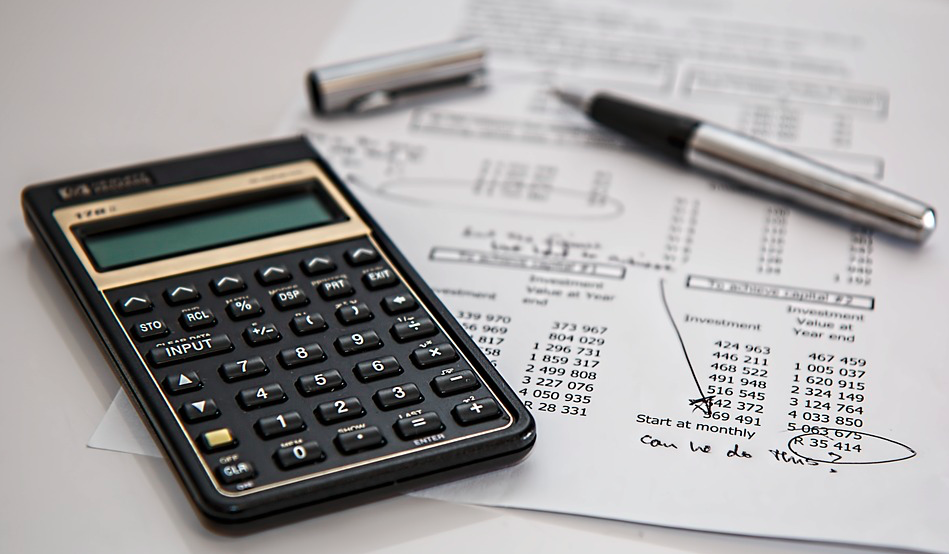
Remember what we said earlier about registering a car at a post office or RDW — this applies here too. If someone buys a car from you, they need to register it in their name (vehicle registration card and ownership code). Either go with them or provide them with the documents. There are some ways that you can sell a car in the Netherlands.
Selling to a car dealership
Going to a car dealership is the easiest way to sell your car. However, that comes at a cost. If you sell to a car dealership, you will not be able to sell it for as much as you’d like or as much as you’d get elsewhere.
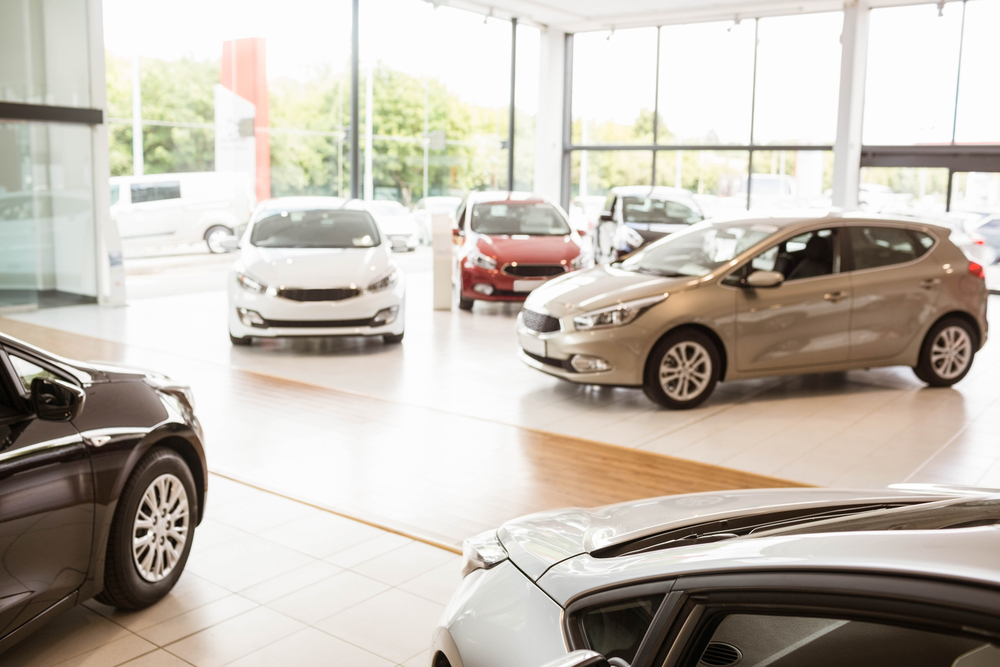
This is the place to sell if you want to get rid of your car. It’s a quick and easy transaction of bringing your car and documents, exchanging the money, and getting the car off your hands. As an alternative, you can sell it to them for money off a new car from them.
Selling your car privately
This involves selling to friends or family or leaving your car outside your house with a big te koop sign in your window. This is a popular method of selling a car, as it involves minimal effort, and you can get the price you are after easier (try not to rip your mates off, though, yeah?).
Selling your car online
One way of selling your car online is in an auction or within a general sale. Sites such as Marktplaats give you the platform to sell your car however you want. This is through an advert asking for the price you want or an auction (people bid for it).
This method can be risky, as you may not get a very good deal for your car, but on the other hand, you could get a great deal, depending on the demand.

Another way of selling your car online is through an RDW-licenced buying site for cars. All you have to do is enter the information about the car, and it’s all processed for you if you both accept the offer — this includes the transferring of registration details (no need to do it to an RDW station). This makes it so much faster to sell your car.
Importing a car to the Netherlands
Bringing your car to the Netherlands isn’t cheap — but sometimes necessary. The whole process can be costly, so make sure you need to take it over before you commit. If you are registered in the Netherlands, you are completely within your rights to bring your car from your home country.
This is because you have to register and obtain a Dutch licence plate, which you can also do through the RDW. You cannot drive your car in the Netherlands on foreign plates.
Importing a car from an EU/EFTA country
One of the benefits of being in the EU is the freedom of goods. This also applies to your car. If your car comes from an EU/EFTA country, you can drive your car in the Netherlands for six months.
After that period, you have to register and obtain a Dutch licence plate. However, you can still be subject to a lot of tax on your car. You may also need your car checked by RDW before they issue you with a Dutch licence plate.
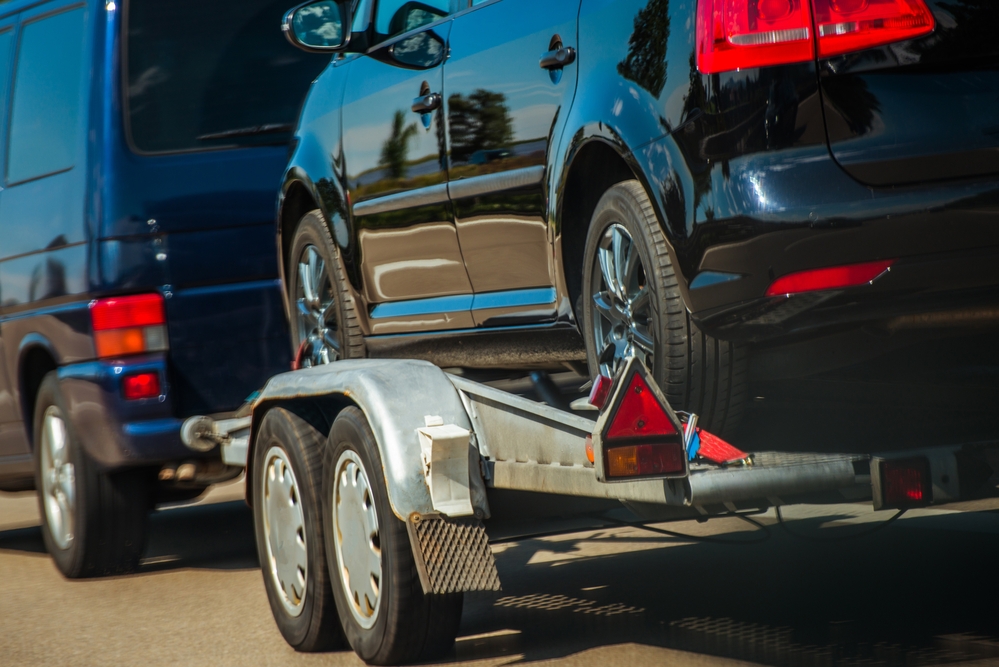
If you bring your car, you must have lived in another EU country for at least 12 months prior and had your car for at least six months. It’s important to know that you cannot sell your car for one year after arriving in the Netherlands.
It’s all part and parcel of having a car in the Netherlands. This is to stop people from going to Germany and buying cheaper cars (We can’t blame them, cars are expensive here).
Importing a car from outside the EU
If you are importing your car from outside the EU, your car needs to be checked by the RDW before they issue a Dutch licence plate.
These checks include meeting the criteria for noise, environment, and safety. These checks can be costly if your car needs to be referred for a special inspection upwards of €1,000 (yikes!).
Avoiding BPM tax
One of the downsides of having a car in the Netherlands is the tax! You are subject to VAT, BPM (private motor vehicle and motorcycle tax), and import duty tax when importing your car. However, you can easily avoid paying BPM tax if this is the first car you take with you to the Netherlands.
If you can prove that your car is ‘personal removal goods,’ you are exempt. This means that your car is essentially part of the furniture. It is not illegal to do this, and it’s not considered lying to the tax office either, as, in theory, it is considered the removal of goods.
Again, you need to have been living abroad for at least 12 months prior and had your car for at least six months. When you fill out your registration form, don’t forget to state that it is a removal good! You could be saving yourself upwards of €4,500 by doing this.
Parking your car in the Netherlands
If you’re planning on having a car in the Netherlands, another expense you will need to consider is paying for parking.
Especially if you live in the Amsterdam area, those costs seem to rise every year, as the city moves more towards public transport. But, if you have your own house with parking attached, this may not be an issue for you.
Happy driving! I promise you it is not as complicated as it sounds, and once you’re all set, you be well on your way to enjoying your new Dutch beauty, along with all the fun road trips that come with having a car in the Netherlands.
Got any extra tips for us about having a car in the Netherlands? Drop them in the comments below!
Editor’s Note: This article was originally published in February 2018, and was fully updated for your reading pleasure in April 2022.

I am now in the process of searching for a car and I found your article so helpful! I do have one question though: What are the gemeente documents you are talking about for the registration (that must be no more than 6 month old)?
Hi Christina!
Sorry, I should have made that clearer. The letter you were given when you first registered with the gemeente, stating the date you arrived and all your details etc. That needs to be no more than 6 months old. So if you registered more than 6 months ago, you need to go back and get it re-printed with today’s date (and this can be used for up to 6 months).
Hope this makes sense and thanks for reading the article! 😀
I think the document must be not older than 3 months. That’s said here in the RDW website https://www.rdw.nl/particulier/voertuigen/auto/kopen/legitimeren-bij-aankoop-van-een-voertuig
Thanks for that Emilio. All updated in the article! 🙂
Importing a car from the UK was *the* most difficult part of moving here. There’s lots of paperwork and you’re right, there’s not a lot of online material on how to do it (partly because some of it is done by the RDW, some by the Belastingdienst). One thing worth adding: if you’re bringing a car from the UK you will need to do at least two things before the RDW will allow you to have a Dutch number plate: change the front headlights so that they’re pointing the right way; and make sure the fog light is on the left-hand side at the back. This can cost a fair bit of money!
There are many scenarios where we end up in a bad purchase. So, if you want to buy a used car the Netherlands make sure that you check the history of the car. There are many ways to get the vehicle history report. http://www.rdwcheck.nl is one of the trusted sources. Get the history of the car with just entering the license plate number.
Having a car in the Netherlands this year will be a great thing, I’m also thinking about it and will do it this year. Thanks for sharing your great.
When you have decided on a car, before you go ahead and buy it you might want to check the complete history of the car like maintenance, mileage, APK, accidental records, previous owners etc. You can request a (paid) report on http://autoverleden.nl/
It costs maybe 20 euros at the best, but gives you a lot of re-assurance 🙂
I have it all set and was at the RDW already, they gave me a BPM aangifte and i am not sure what to do with that. On the phone RDW told me i have to mail that form to the Belastingdienst. But on the website of the Belastingdienst it says i have to send that form AND a calculation of the BPM to them. Downloading the calculation of the BPM its a lot of gibberish about netto and brutto costs of the car that I dont even know because I bought it used in germany. Can I get help somewhere on how to fill this out? Do i even need to fill this out? Would be glad for any help..
Have you guys considered using pay per use car services like Car2Go, Greenwheels, IoniQ carsharing etc?
Hi Emma, reading your post I haven’t read anything about coming in the Netherlands with a borrowed car. I will be here with my parents’ car for three months only. Do you have any hint to give me about fees and taxes? I noticed most of the exception are about owners of cars only.
Thanks in advance.
Your site was very helpful! Thanks.
Question: what do you know about buying a car from Germany for example, after I arrive and bringing it to the Netherlands?
Hi. Very helpful.
Any idea about Brexit…??!!
I have a UK reg car, it is over a year old and it has been in France for the last 8 months. I move to Netherlands in early March (before the dreaded
B word date). Any idea what I should do?
Hi,
Does anybody know if I have to pay any car tax when I’m resident in Netherlands and drive car which is not mine? Let’s say it is owned by my friend outside Netherlands but inside EU.
Thank you very much
No Dutch tax paying resident is allowed to drive a non-Dutch plated vehicle in Holland!
Hi, how are you?
Just one note regarding “obtaining the driver license”
I am from Argentina and i was granted the 30% ruling.
If you are granted with this tax benefit, you can exchange your non EU driver license for a dutch driver license without a limit of time, the only thing necessary is that your non EU driver license is active.
And you need to pay for like a health certificate or something like that and you can go to the Gemeente without an appointment.
A friend of mine (dutch) call to them and they answer what i mentioned above.
I hope this is useful for the other.
And thanks for all the information.
Best regards to all.
Hello all, I just have one question. Is it possible to bring a foreign car to the Netherlands (for example from Germany) drive it for 6 months and then go to Germany sell it and buy another German one and drive it for 6 months and so on?
Kindest regards to all 🙂
Hi, I would like to ask how it is with motorcycles. If I’m a student and I want to bring my motorcycle here, but I don’t want to register it here cuz I will take back to my country after. Do I need to register anyway or? Am I allowed to drive it here? Thank you 🙂
If you have a dutch driver licence – and you can change yours even if your EU licence from another country is still valid – this dutch licence counts as ID in the netherlands. Advantage even as a foreigner you can use the benefits from Post.nl stations and can avoid RDW visits
I have just started the process of importing my EU car into the Netherlands, and filed for BPM exemption (i.e. import my car as ‘removable goods’, to avoid BPM tax).
Here are my tips:
– file for BPM exemption as soon as possible, even before you go to the RDW inspection. You can do this without having the car, physically, in the Netherlands;
– file for a parking permit (if applicable), as soon as you are registered at your ‘home’ address, so when your car is in the Netherlands, you already have a place to park it, cheaply.
– after the RDW inspection is over, they will keep all your current car documents, so legally you cannot drive your car anymore!; be aware of this, as I did not know about it and I am still waiting on the a response for my BPM exemption. Had I known this, I would have waited to do the RDW inspection as late as possible, because my car was legally registered in another EU country, so I could have driven it here.
General advice: if you don’t get a response or confirmation from them (=tax office or municipality or any public institution), reach out to them, _call them_ and ask about the status of your request. They are happy to help. I’ve been waiting on a response for my parking permit for two weeks now, and when I finally called, they told me that they don’t even have my request (although I received an email confirmation from them).
Hi Radu
One question please: have you received any answer for the BPM . I m going to apply also and your advice is very good to postpone the inspection until I will receive the BPM exemption
Also can you help me regarding the allowed period to drive in NL b4 changing the plates? I didn t find anything about 6 month. On the EU sites is mentioned 6-8 weeks
Thank you
Anca
Hi Anca, I’m in a similar situation. Did you postpone the inspection and got the exemption?
Thank you Emma. You have been very kind in sharing your experience and knowledge about buying a car in the Netherlands. I am wondering in bringing from Germany. I have not done it because I have had many bills during the lockdown but I will certainly keep in mind all your information.
Hi All,
Quick question: I will be moving to NL within couple months, in the meanwhile I have just bought myself a car in Germany having lived here 12+ months. It might happen that on my official moving date the car will be in my possession less than 6 months. Would it be a solution to register the car in NL later (within allowed 6m period) in order to qualify for BPM exemption?
Appreciate your advice!
Best regards,
Frank
Hey Frank, I’m in a similar situation. How did you solve this?
Hi, all,
I need your help, please!
I have an italian car, I moved to Netherlands 4 months ago (July) and I need to change my plate number. I know there are a lot of steps (a very bureaucratic process) to reach to the end: RDW inspection, apply for BPM exemption, etc, etc.
My questions:
1- I was granted the 30% ruling. What benefits do I have?
2- How much (+/-) do I have to pay (all the steps) to get the dutch plate (my car is a Mitsubishi Outlander 2.2 Di-D Instyle Navi 4WD, 6/2013, 78000Km, 2.200cc Diesel, 150cv, 138 g CO2/km (comb.)?
3- How long does it take?
I tried to get the information about the prices/costs, in all the websites, but I can’t find anything.
I thank you in advance for your help.
Ana
Hello all,
is the 6-month period (mentioned in the ‘Importing a car from an EU/EFTA country’ section) still valid? I imported my car from Italy at the beginning of the year, and I have no idea about the amount of period before registering my car to the Dutch system. Any feedback/comment would be very appreaciated.
Best,
Pina